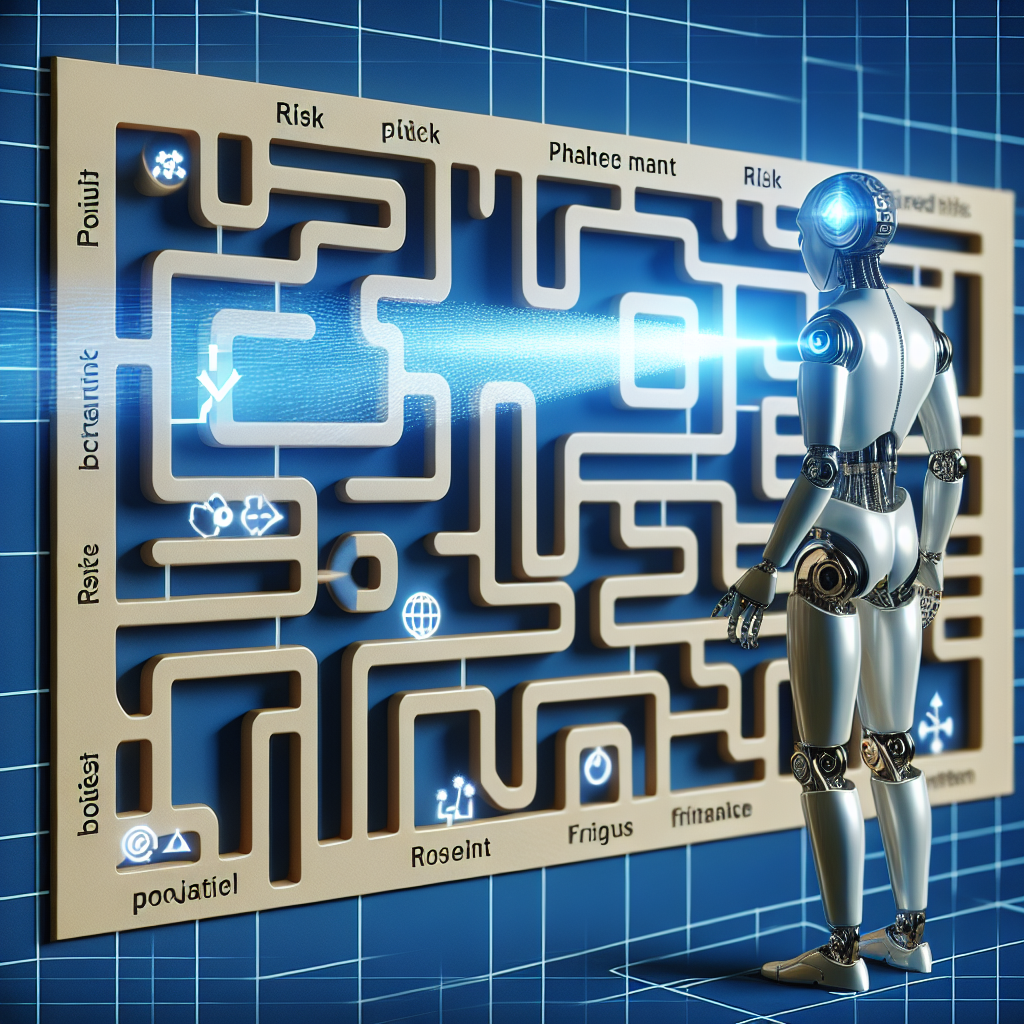Artificial Intelligence (AI) has revolutionized many industries by automating processes, optimizing workflows, and improving decision-making. In project management, AI is becoming increasingly important in managing risks and uncertainties that can impact the success of a project. By leveraging AI technology, project managers can identify potential risks early, analyze data more effectively, and make informed decisions to mitigate these risks. In this article, we will explore the role of AI in project risk management and how it can benefit organizations in successfully delivering projects.
The Role of AI in Project Risk Management
1. Risk Identification and Assessment: One of the key roles of AI in project risk management is in identifying potential risks and assessing their impact on the project. AI algorithms can analyze historical project data, industry trends, and other relevant information to identify risks that may impact the project timeline, budget, or quality. By using AI tools, project managers can proactively identify risks and develop strategies to address them before they escalate.
2. Predictive Analytics: AI can also be used for predictive analytics to forecast potential risks and their likelihood of occurrence. By analyzing historical data and patterns, AI algorithms can predict future risks and help project managers develop risk mitigation strategies. This proactive approach to risk management can help organizations avoid costly delays and setbacks in their projects.
3. Real-Time Monitoring: AI technology can enable real-time monitoring of project data and KPIs to track project progress and identify potential risks as they arise. By using AI-powered tools, project managers can receive alerts and notifications when certain risk indicators exceed predefined thresholds. This real-time monitoring allows project managers to take immediate action to mitigate risks and keep the project on track.
4. Decision Support: AI can provide decision support to project managers by analyzing large volumes of data and generating insights that can inform decision-making. AI algorithms can analyze project data, stakeholder feedback, and other relevant information to provide recommendations on how to mitigate risks and optimize project outcomes. By leveraging AI-powered decision support tools, project managers can make informed decisions that drive project success.
5. Automation of Routine Tasks: AI can automate routine project management tasks, freeing up project managers to focus on more strategic activities such as risk management. By automating tasks such as data entry, reporting, and scheduling, AI technology can streamline project workflows and improve overall efficiency. This automation can help project managers save time and resources, allowing them to allocate more resources to managing project risks effectively.
Benefits of AI in Project Risk Management
1. Improved Risk Identification: AI technology can help project managers identify risks more accurately and quickly by analyzing large volumes of data and identifying patterns that may indicate potential risks. This proactive approach to risk identification can help organizations address risks before they escalate and impact project outcomes.
2. Enhanced Decision-Making: AI-powered decision support tools can provide project managers with valuable insights and recommendations to inform decision-making. By analyzing project data and trends, AI algorithms can help project managers make informed decisions that optimize project outcomes and mitigate risks effectively.
3. Real-Time Monitoring: AI technology enables real-time monitoring of project data and KPIs, allowing project managers to track project progress and identify risks as they arise. By receiving alerts and notifications when certain risk indicators exceed predefined thresholds, project managers can take immediate action to mitigate risks and keep the project on track.
4. Automation of Routine Tasks: AI can automate routine project management tasks, freeing up project managers to focus on more strategic activities such as risk management. By automating tasks such as data entry, reporting, and scheduling, AI technology can streamline project workflows and improve overall efficiency.
5. Cost Savings: By leveraging AI technology for project risk management, organizations can reduce the costs associated with project delays, rework, and other risks that may impact project outcomes. By proactively identifying and mitigating risks, organizations can save time and resources, ultimately leading to cost savings in project delivery.
FAQs
Q: How can AI help project managers identify risks in a project?
A: AI technology can help project managers identify risks by analyzing historical project data, industry trends, and other relevant information to identify potential risks that may impact the project timeline, budget, or quality.
Q: Can AI predict future risks in a project?
A: Yes, AI can be used for predictive analytics to forecast potential risks and their likelihood of occurrence. By analyzing historical data and patterns, AI algorithms can predict future risks and help project managers develop risk mitigation strategies.
Q: What are the benefits of using AI for project risk management?
A: Some of the benefits of using AI for project risk management include improved risk identification, enhanced decision-making, real-time monitoring, automation of routine tasks, and cost savings.
Q: How can AI technology be integrated into existing project management systems?
A: AI technology can be integrated into existing project management systems through APIs, plugins, or standalone applications that are designed to work with popular project management tools. Organizations can also work with AI vendors to customize AI solutions to meet their specific project risk management needs.
In conclusion, AI technology plays a crucial role in project risk management by enabling project managers to identify risks proactively, make informed decisions, and optimize project outcomes. By leveraging AI-powered tools and algorithms, organizations can improve their risk management practices and successfully deliver projects on time and within budget. As AI continues to advance, its role in project risk management will only become more critical in ensuring project success.

